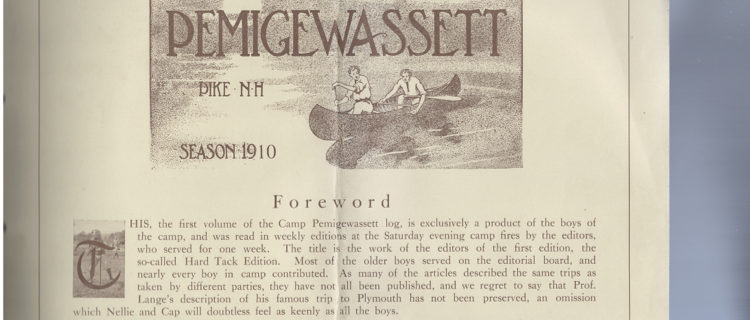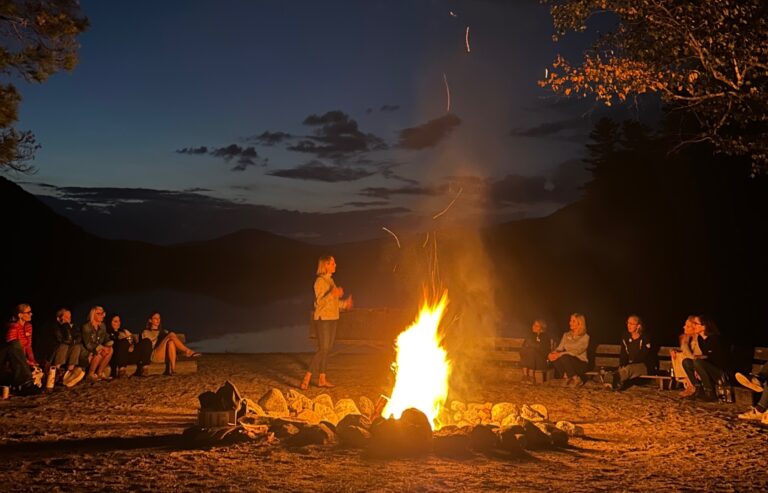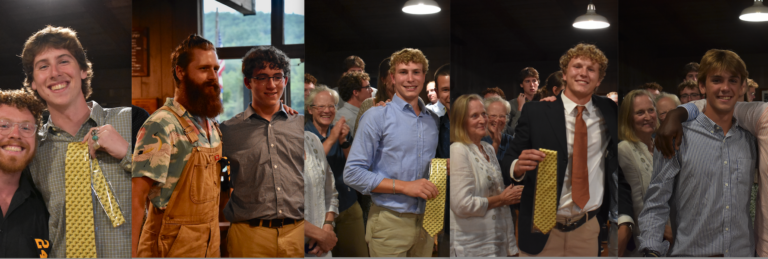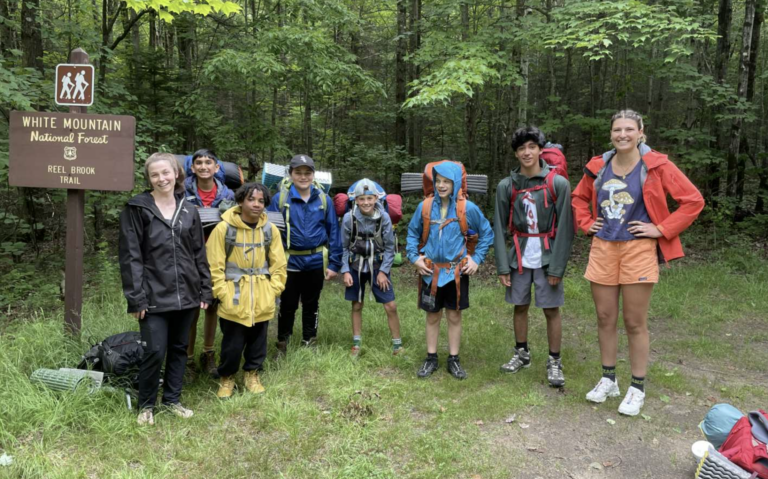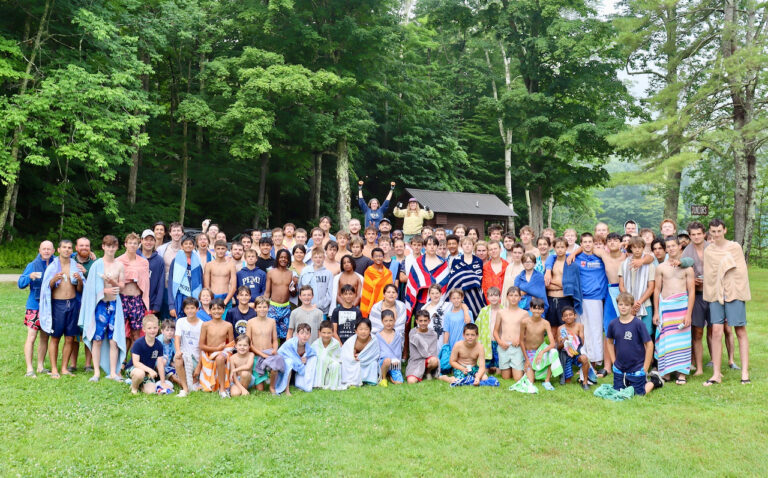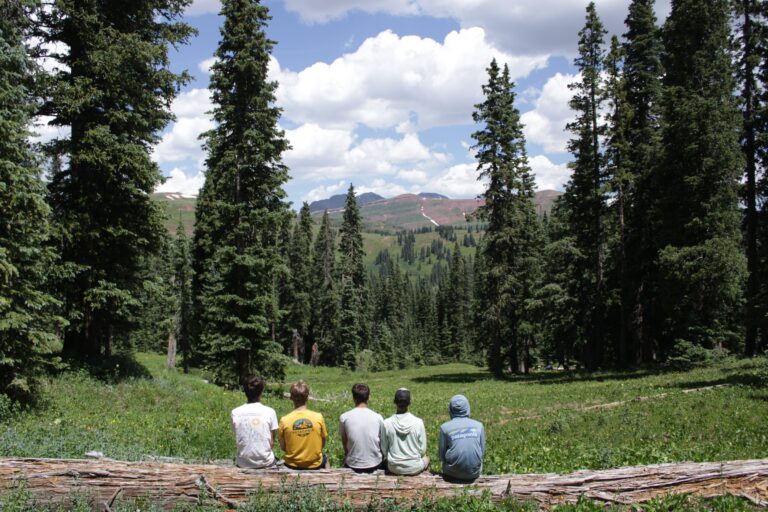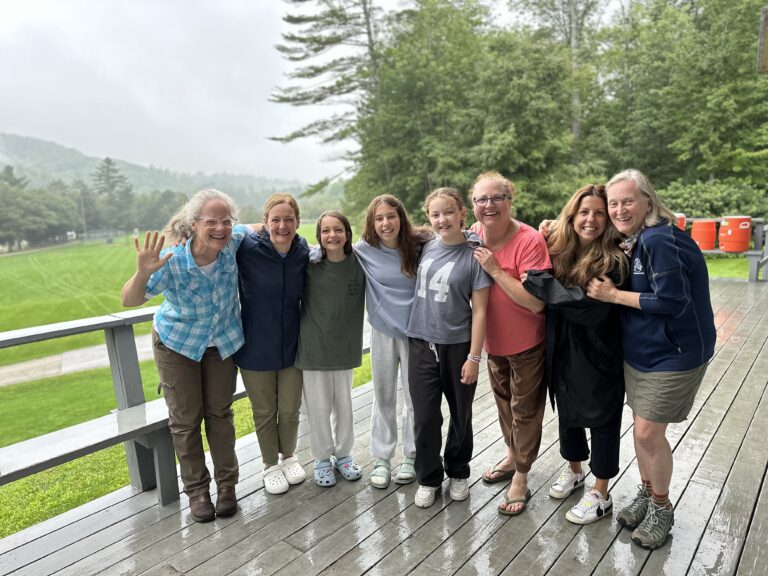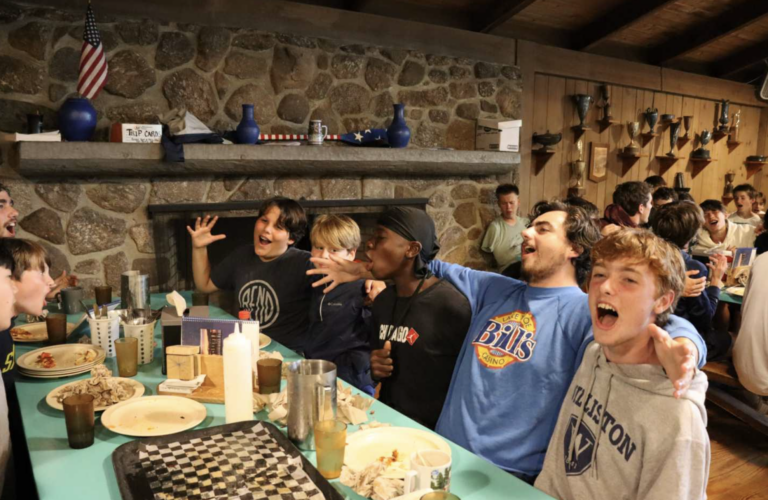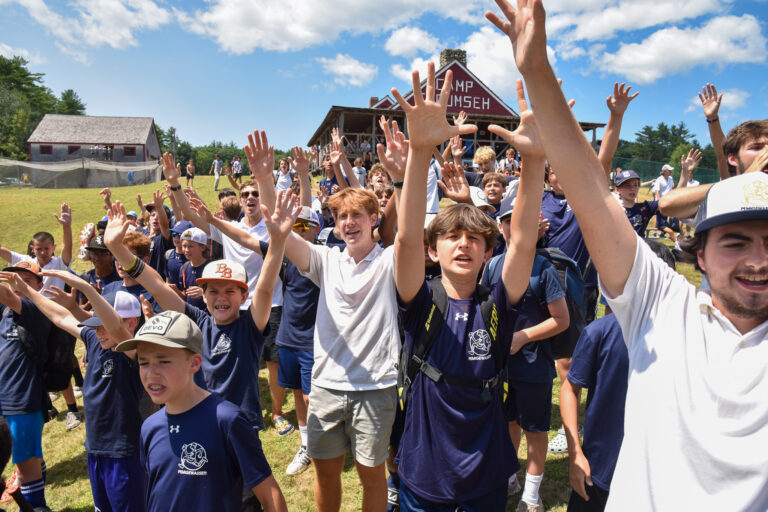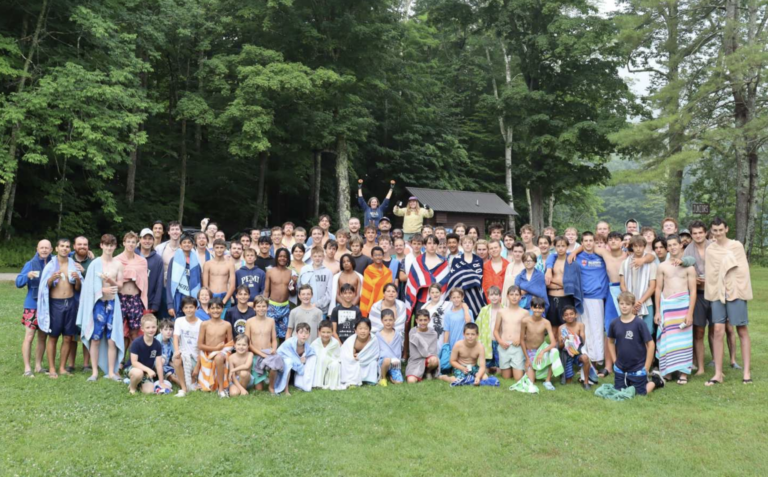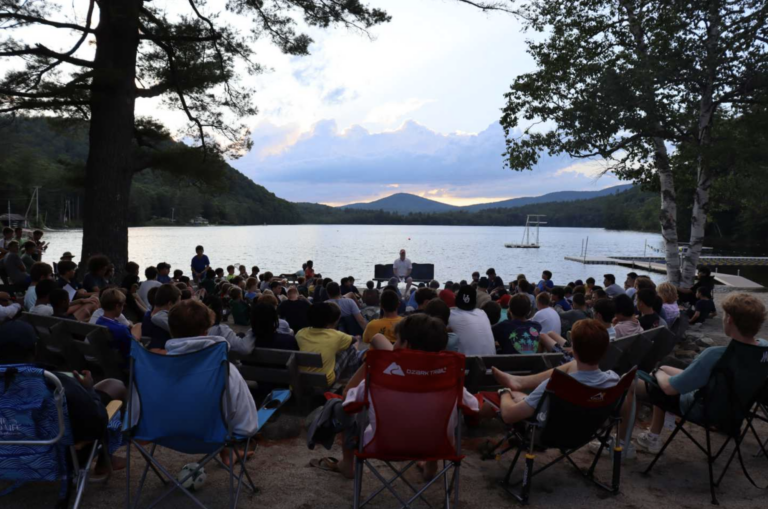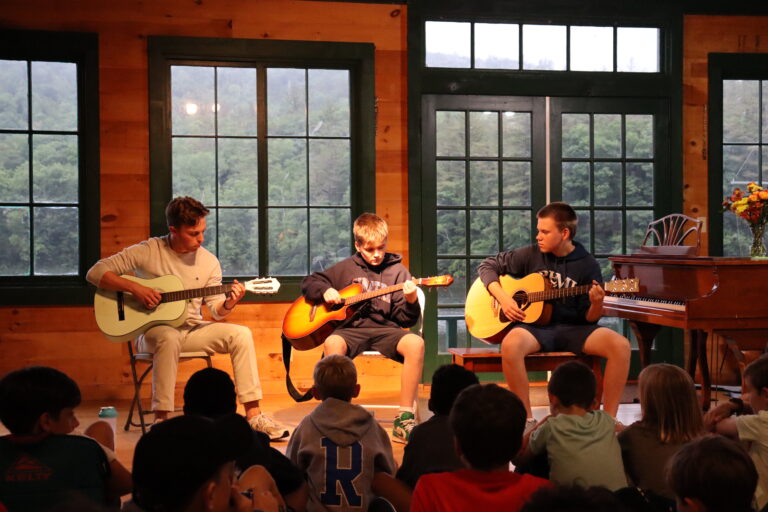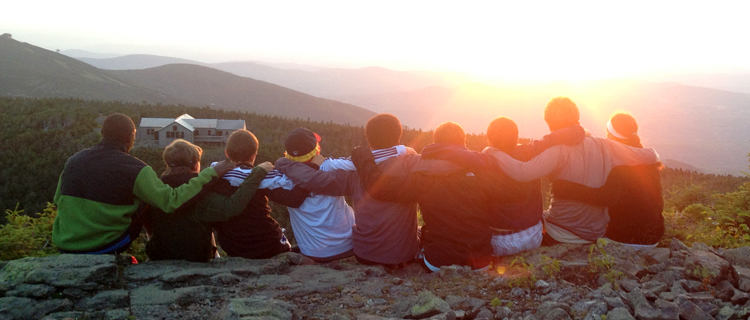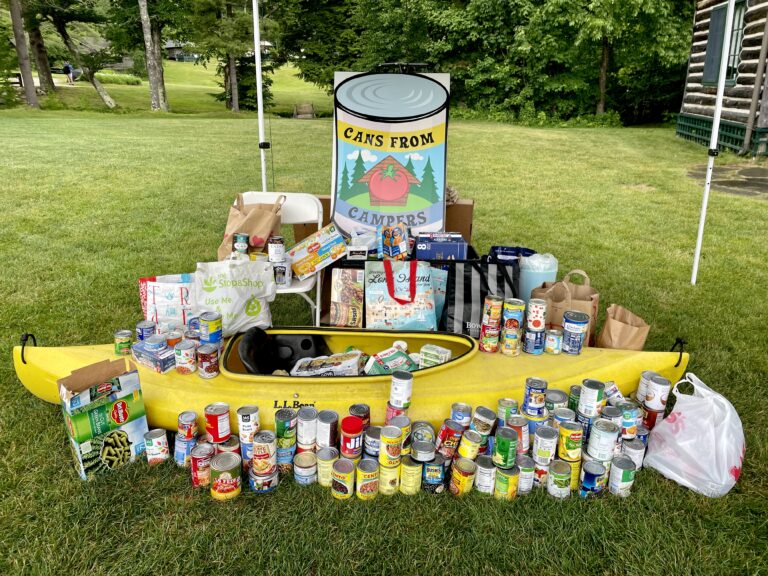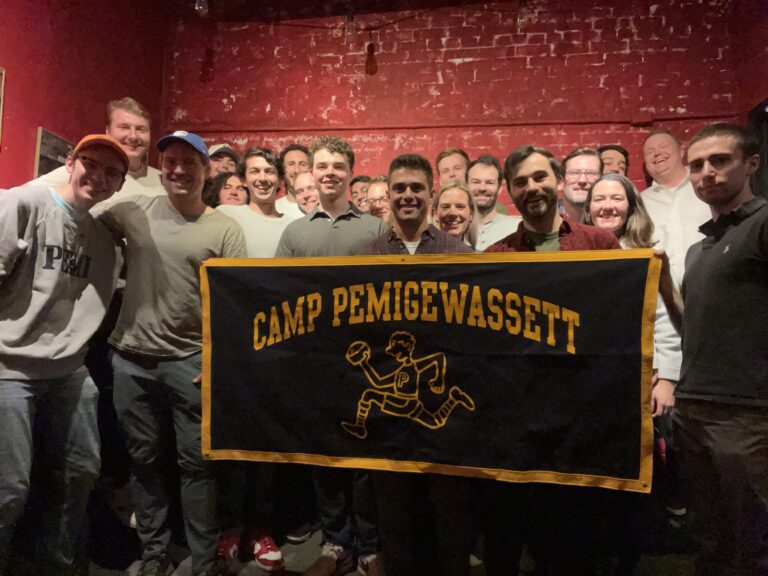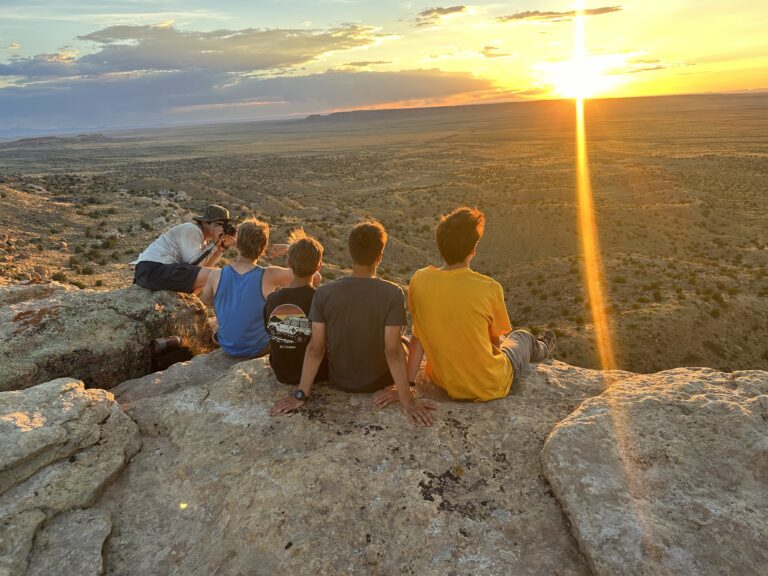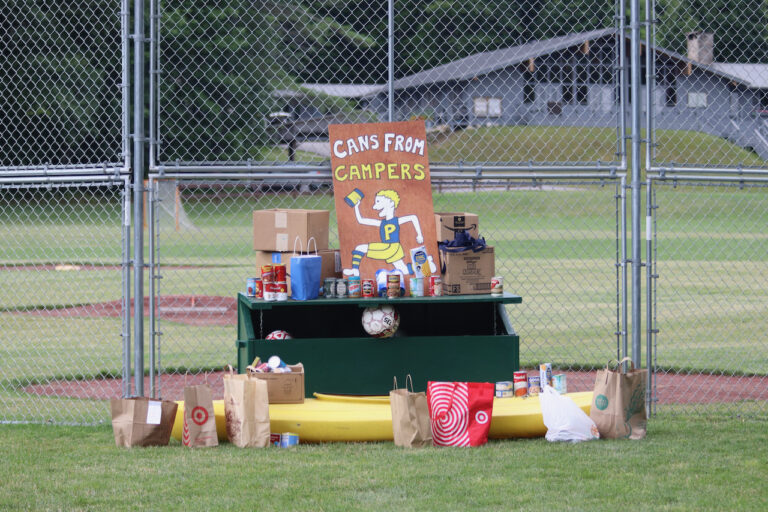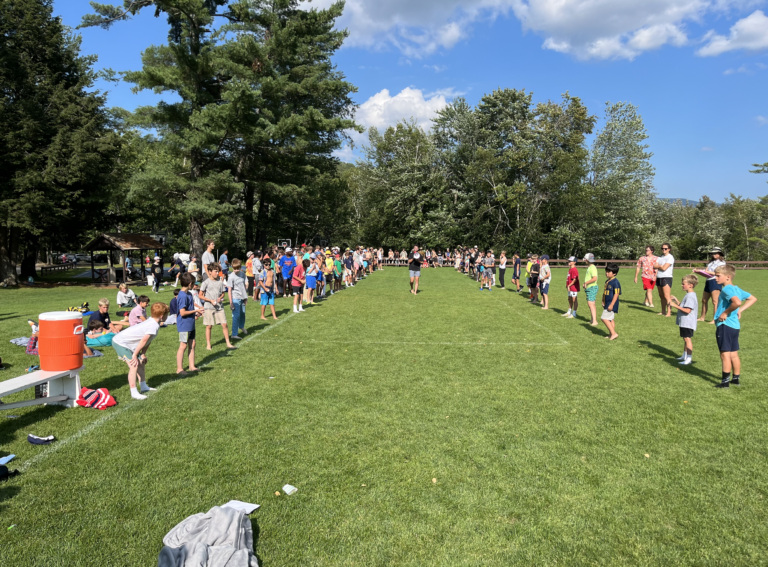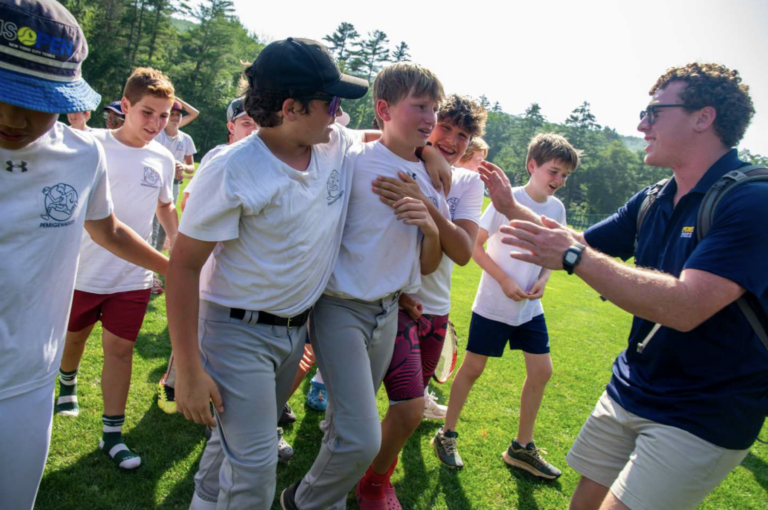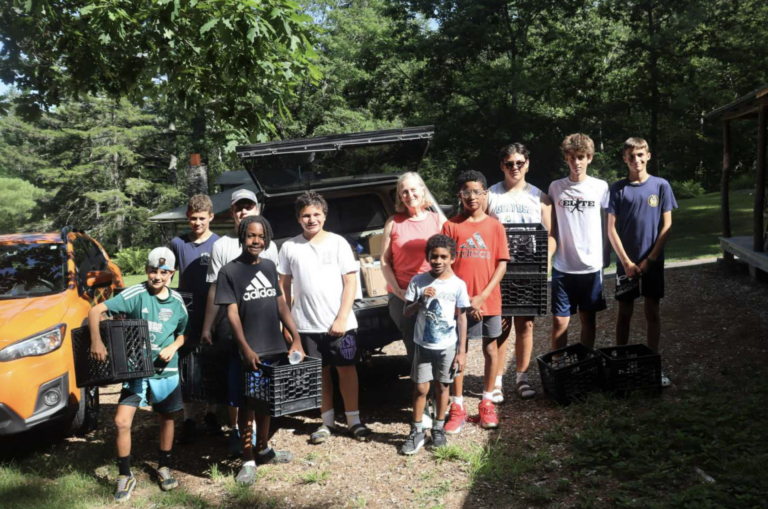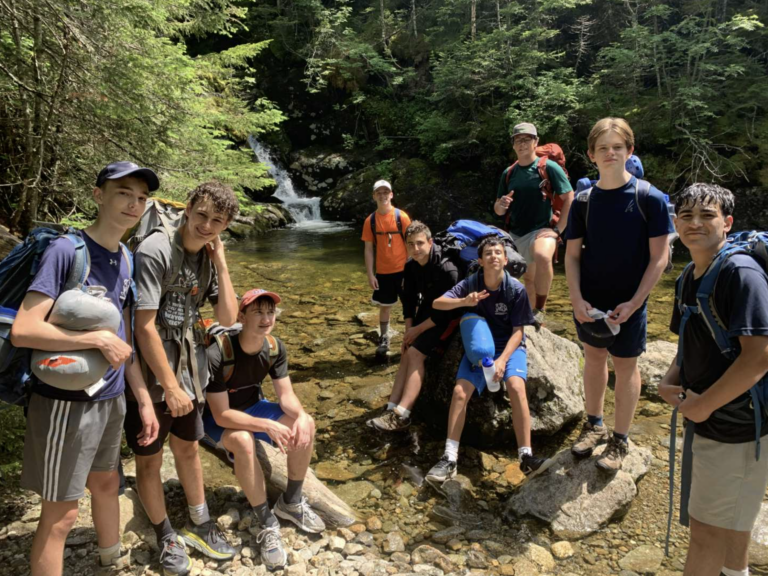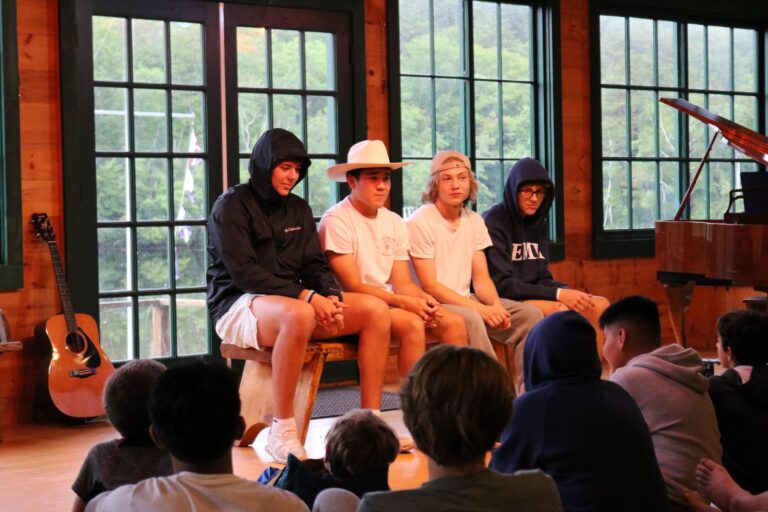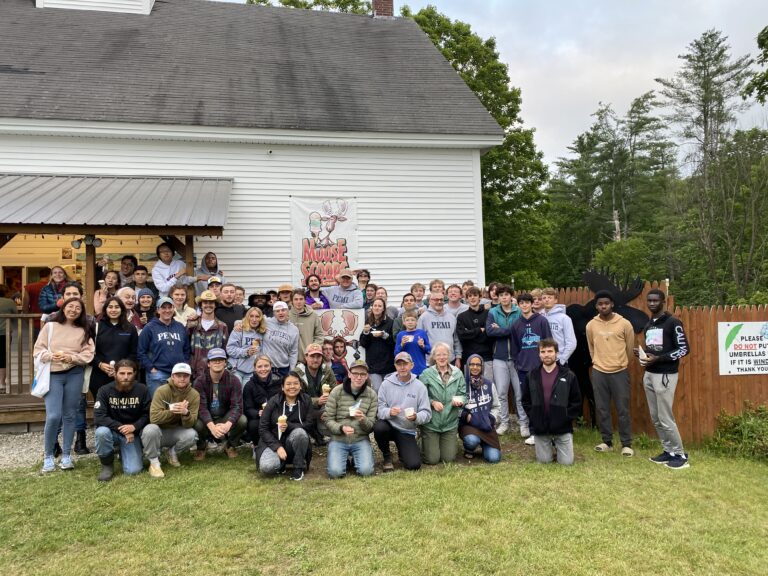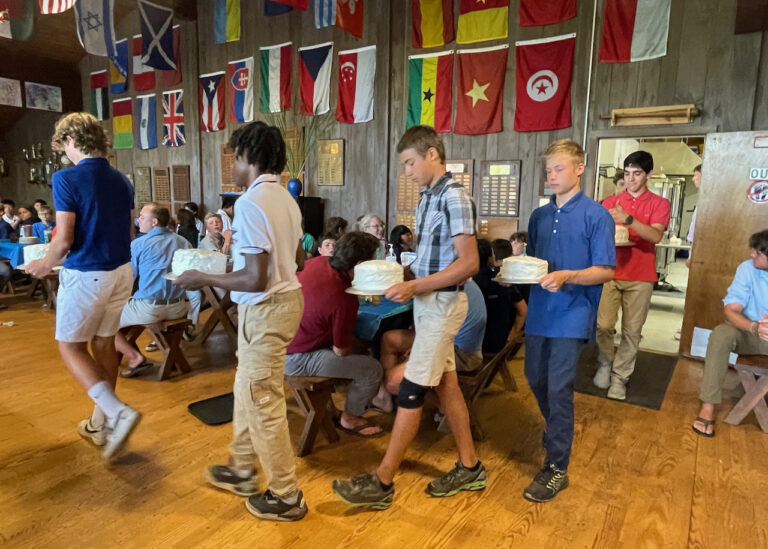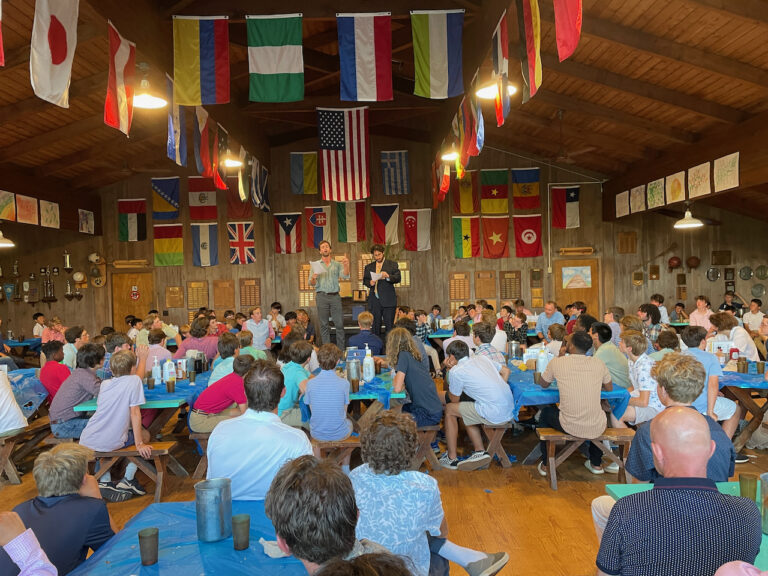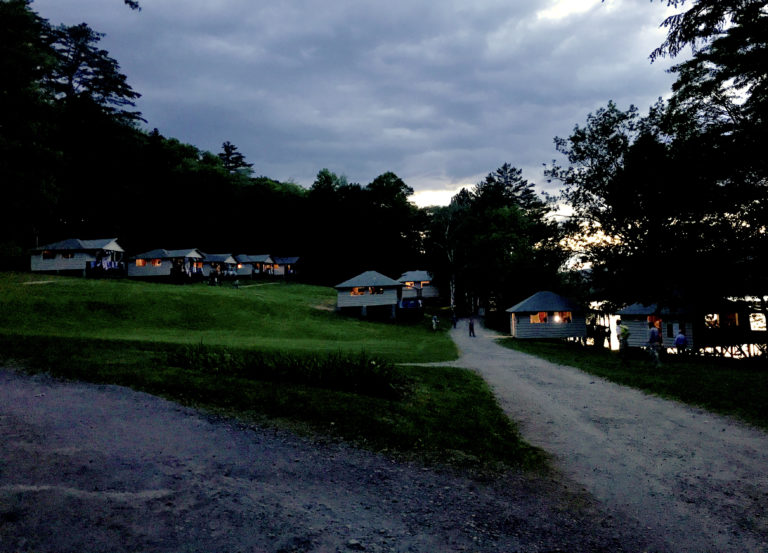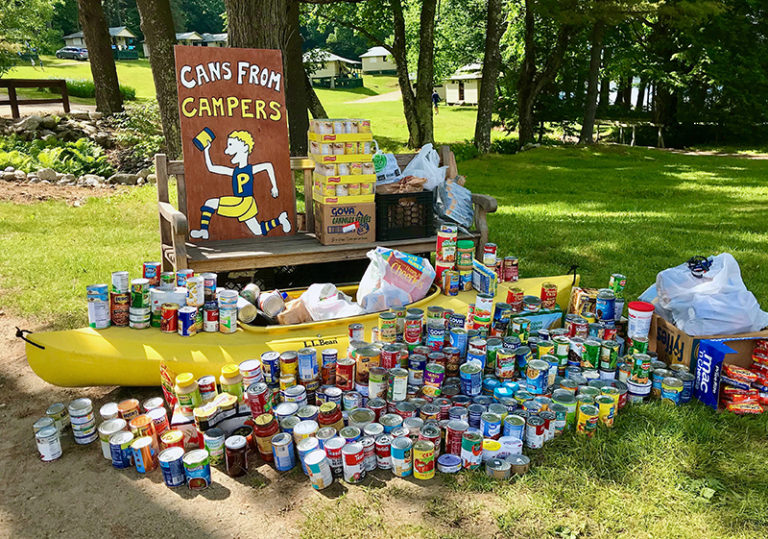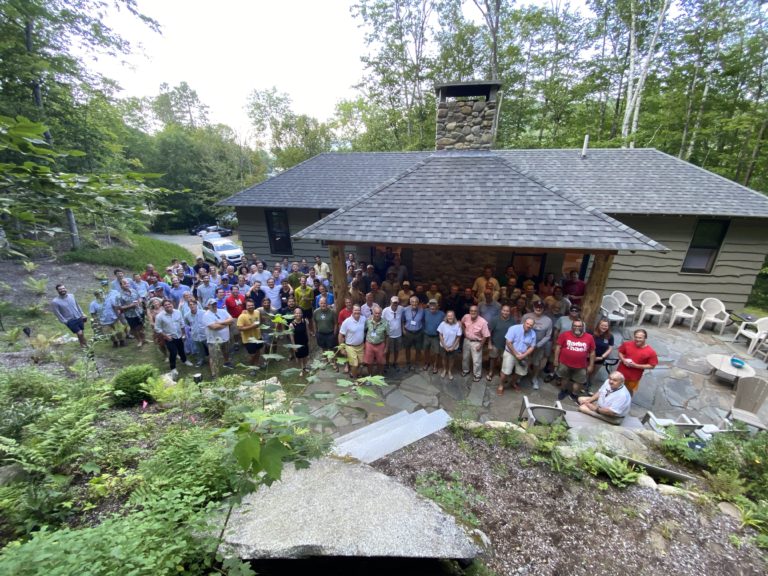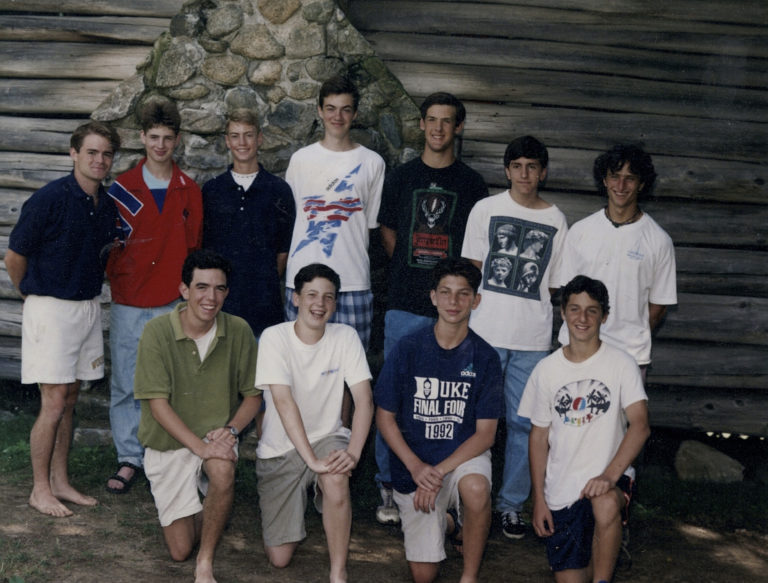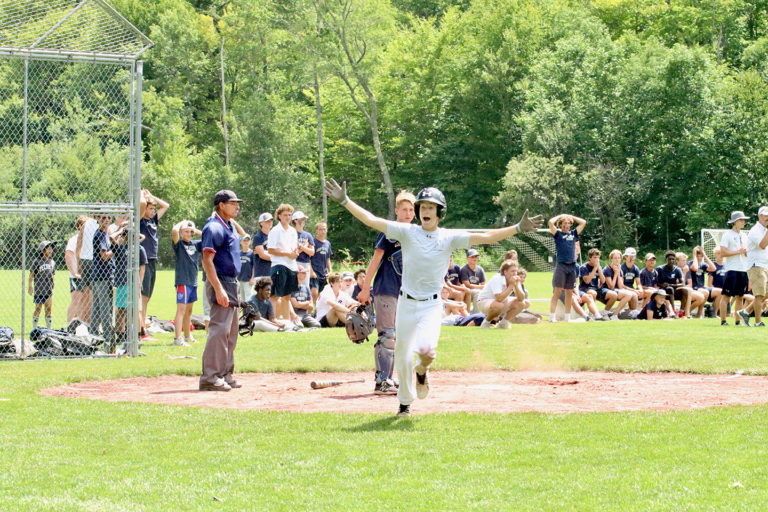- Camp Pemigewassett
- Newsletters 2018
- Pemi History
- Summer 2018
#4: “Things to Look For!”
2018: Newsletter #4
Pemi’s infamous journal, Bean Soup, is celebrating its 109th season this summer, having come into being in the same year as The Wind in the Willows, “To Build a Fire,” and Dorothy and the Wizard of Oz. As far as we know, it’s the oldest and longest-running such camp publication in the country, and boys and staff alike look forward to its Monday night ladlings with all of the excitement of fans awaiting the next season of Madmen, Game of Thrones, or The Handmaid’s Tale. The only difference is that there’s no binge-watching Bean Soup, as every pot is boiled up fresh every week. Even the editors never know what will go into the pot until hours or even minutes before they take their places on top of their table/bully pulpit at the front of the Lodge.
By now, you’ve noticed that the metaphoric language used to refer to this time-honored Pemi institution (e.g. “ladling,” “boiled up fresh,” and “pot”) are very much in line with the admittedly odd title: Bean Soup. Even as you quietly approve of the way Pemi exposes your sons to figurative language at an early and impressionable age, you may be wondering, “Why Bean Soup?” Honestly, we don’t know. Maybe the best guess is that the first editors were taking a subtle (or not-so-subtle) dig at the monotonous and dollar-conscious menu-planning in Pemi’s early seasons. Whatever the explanation, some regrettable hazing evidently surrounded the first “servings.” Boys new to Pemi, it seems, were assured that the potage about which they had heard so much was very literal soup—and that, in order to down theirs, they would have to carve a wooden spoon for the steaming, after-dinner snack. We weren’t personally there to witness the “gotcha” laughter that must have transpired, but we’re glad that Pemi has grown softer and more humane in this sense at least. That said, some of the lampooning that goes down on a regular basis is often fairly spicy. We continue to believe that satire, when it observes appropriate limits, is a potent tool of collective social awareness, helping people laugh at themselves in a way that makes them better for the chuckles and, finally, parts of a jovial and accepting community. Think best friends making fun of each other playing softball, or at a bridal shower, or at a rehearsal dinner.
Printed, bound up, and distributed to the whole camp family just before the Winter Holidays, Bean Soup has always aimed to be something of an historical record of the season. Look back to the oldest numbers and you’ll find directorial newsletters, accounts of mountain trips and athletic events, reviews of vaudeville and Gilbert and Sullivan shows, rosters of various athletic teams in all of the different age groups, the names of the recipients of our major awards, and so forth. To ring a change on the old New York Times motto, “All the news that fits, we print.” We must admit in this age of charges of “fake news” that Bean Soup (as it is democratically written by editors, general staff, and campers alike) has sometimes allowed zaniness and imagination to take scrupulous verity hostage—yielding something more like The Colbert Report or even SNL than the PBS News Hour. Favorite genres over the years have included supposed transcripts of the directors’ financial schemings to host a new Woodstock, say, or to open an Elvis theme park; or “intercepted letters” from Junior campers who are, sub rosa, Russian spies or feasibility experts looking into a new MacDonald’s franchise in the mess hall; or re-writes of various Pemi or public-domain songs that turn melody to mayhem in all the ways you might expect of zany and creative individuals having a good time at staid decorum’s expense.
Way, way back, servings of Bean Soup began by just diving into the real news of the week. In the fifties and sixties, however, brief “introductions” became increasingly common, taking a minute or two to suggest, for example, that a recent four-day spate of rain had Mr. Jefferis up in the shop secretly building an Ark. One marked initiative of the nineties was to send up the contents of the previous (Sunday) evening’s edifying talk—as, just last week, superlative 2018 editors Harry Cook, Wes Eifler, and Dan Reed made gentle fun of Larry Davis’s hyper-informative but amusing Sunday talk on insects’ place in the food chain, entitled “What Good Are Black Flies?” Their parodic PowerPoint presentation? “What Good Are Juniors?” Last week, this inventive trio had kicked off the Soup with an hilarious edition of Pemi Jeopardy, with categories you probably have to be a Pemi person to appreciate fully: “Wretched Waiters,” “Things that Flush and Things that Don’t,” or “Things that Larry Doesn’t Like.” To be honest, much of today’s Soup is more performative than simply aural, but judging by the volume of laughter generated, it is still preternaturally adept at striking the collective funny bone.
Every ladling of the Soup ends with “Things To Look For,” which first became a staple back in the late fifties. Here’s where the foibles or fixations of a number of our company can be brought to light in a grin-inducing way. If there’s a Senior who tends not to respond to Reveille, the Thing To Look For might be a nuclear alarm clock or a special bunk featuring a water slide into the lake. If a pitcher has had a spectacular game against Camp Moosilauke, the Thing To Look For might be a contract from the Yankees (sure to bring resounding “Boos!” from any Red Sox fans in the room.) If a counselor has notoriously forgotten his Nalgene on a Mt. Cube trip, the Thing To Look For might be a personal drone from the Poland Spring bottling plant. And always—always—the last Thing To Look For is “A better Bean Soup,” that final item chanted out knowingly by every person in the room as they rise from their seats, applaud the editors, and head off to their cabins to get ready for bed. There’s something charming about this weekly acknowledgement that we can, all of us, do a little better next time—even if that particular night’s serving had us weeping repeatedly with laughter.
Oh. One more thing, and then we’ll turn to a couple of example of articles that really do capture the content and feeling of the 2018 season. I just mentioned the collective response of “A better Bean Soup.” For a good half dozen years now, before the editors first stride into the room to thunderous applause, the gathering crowd is as likely as not to fall into the call and response patterns of Loony Toon’s infamous “Duck Season/Rabbit Season” cartoon. Two or three boys will stand up and call out, say, the name of one of our twins—e.g. Ollie Fauver—and eight or ten will pick up the game and leap up shouting the name of Ollie’s brother, Leo. Soon, half of the room (100 souls) will be popping out of their seats to yell “Ollie Fauver,” only to be countered by the other half jumping up to scream “Leo Fauver.” The reciprocal chants run on for some incalculable interval until a pair of staff brothers might supplant the Fauvers: “Per Soderburg”…“Kai Soderburg,” perhaps; or “Matt Kanofsky”…“Andrew Kanofsky.” It can go on for minutes at a time, either until the editors come in and begin the formal proceedings or until, as often happens, all rise spontaneously to sing the National Anthem as though we were all in Fenway Park or Camden Yards rather than the Pemi Lodge. It can all seem a little crazy, but it’s the ritual that has sprung up here as mysteriously and amazingly as mushrooms after a summer rain. It’s what we do, and everybody seems to love it.
Now, let’s turn to a couple of “real,” “substantial,” “historical” accounts—the items that, once all the laughter has died away, will remind readers come December of all of the great and substantial things that have happened at Pemi in 2018. The first is from our wonderful third-year Nature staffer, Scout Brink, who reports on one of the life-changing trips that sally forth from Pemi every year.
CAVING 2018
On July 2nd, in the year 2018, nine of our bravest Pemi 15’s embarked on a trip into the depths of the Earth. With Larry Davis, Reed Harrigan, and Scout Brink as their trusted leaders, the group traversed over 6,000 feet of caves within the Schoharie County of New York. Our departure from home base was slightly delayed due to an overactive dumpster and a blind spot behind the van. Our men, however, would not be deterred; a replacement van was drafted and we were able to head out around 10:30 AM.
We stopped for lunch on the way to our base-camp, which was at Larry’s sister Emily’s house. Once we arrived at her place, we put our gear on and set out for our first adventure: Knox Cave—a wonderful introduction to caving, as the entrance was a slanted rock that we had to slide down, followed by a 15-foot ladder. Once in The Big Room, we discussed how jointing of the Earth’s crust can cause rocks to collapse and passages to develop into large caves. From here, we split up into two groups. Four campers went with Scout to The Dungeon, where we had to climb up the wall and then crawl through a hole to a secret room. Our campers came in waves of four to find this secret room, but only after they had army-crawled through a small tunnel to look down the infamous Gun Barrel. Our first mission was exceedingly successful for several reasons. First, Hisashi [Lonske] overcame his fear of heights, earning the new title of Hero-shi, and Angus [Williams] saved an amphibious friend who had been washed into the cave.
Back at Emily’s, we could relax with a delicious chicken dinner and s’mores over a campfire for dessert. Larry showed how proud he was of our campers’ accomplishments by telling a secret campfire story, just before the storm came. Lightning began to flash in the distance, and we made our way to our sleeping bags. There was a bat singing “Strangers in the night” with us in the attic where we bunked, which was no surprise considering that Emily (a world-renowned caver) is an avid bat lover.
Our final day began at 7:00 AM, with an amazing buffet-style breakfast, with juice-tube-straw-thingies, to fuel us for our double-cave extravaganza. On July 3rd, we dominated Schoharie and Clarksville Caves, both of which were created by water saturated with carbon dioxide dissolving limestone as it followed the paths of least resistance, through joints and faults within the crust. Because of this, our mission was to wade through an underground stream, and as we got up to our waist in 40-degree water, our men got tough skin and took it in stride. Both caves ended at sumps, which are areas in a cave where the ceiling drops down and the tunnel becomes so full of water that it would require the use of scuba gear for passage (which we didn’t try!) It was here, at the sumps’ beginning, that we sat in a circle, turned off our headlamps, and experienced total darkness!
All three missions were deemed successful, and we celebrated at Chelsea’s Royal Diner. Eli Brennan, Angus Williams, Ailer Thomas, Matthew McDonough, William Ackerman, Hisashi Lonske, Quinn Markham, Ian Hohman, and Mitchell Chin all became better men throughout those two days. They toughed through phantom smelly water, hornets, clogged toilets, and came back to Camp Pemigewassett wiser, more patient men, with a new appetite for adventure.
And now we move to a poetic but excruciatingly factual account of a recent soccer match, penned by Trip Specialist John “JP” Gorman, who moonlights as a football coach. JP’s effort confirms that there’s something in the Gaelic blood that lends itself to verse of an epic sort. (Please note that the names included in [brackets] are there only for informational purposes and are not to be sounded as you read either silently or aloud! There is true, metrical music in JP’s lines!)
15’s SOCCER VS MOOSE
P-E-M-I Sis-Boom-Bah
This game belonged to Isaiah [Abbey].
When Pemi toiled to conquer Moose,
He decided to let loose—
First one, then two, and finally three,
Each met by cheers from ol’ Pemi.
A hat trick on the day for him,
But this was more a Pemi win.
From Gordo [Robbins] standing tall in goal,
To Andrew Roth with each through ball,
We showed true class with grit and skill,
And Luca Tschanz prepared to kill
Any soul who tried to score!
Our defense held, a solid core,
Then [Sebastian] Soto cutting from the flank
Let loose a rocket that will rank,
Among the best that Pemi’s seen.
He’s so much skill for just fifteen.
One not enough, he struck again,
Enabled by the other ten,
Who moved and passed with poise and grace.
[Luca] McAdams touch and Tristan’s [Land’s] pace
Brought only grief to each Moose boy,
Then aided by Coach Malcolm’s ploy:
He played the squad’s trump card of depth.
With each fresh sub the Moose team wept—
First H.Mo [Henry Moore], Bennett [Braden], Cam [McManus] and [Eliot] Jones,
Then Simon [Taylor] shook them to their bones.
Braden [Richardson] followed, [Nick] Ridgeway, too,
With [Timmy] Somp and Teddy [Applebaun] in the groove.
Marshall [Nielsen] held at left full back,
Helped of course by mighty “Wack”—
Will Ackerman that is, you see.
Our centre back of steel is he.
[Jacob] Smalley started number nine
With Nelson [Snyder] sprinting down the line.
Moose had no chance; we could not fail!
With [Coach Will] Meinke’s tactics we prevailed.
They did strike once, from a P.K.,
But all-in-all a Pemi day.
So P-E-M-I Sis-Boom-Bah!
We’re coming for you Tecumseh!!
Tecumseh Day, against our ancient rivals from Lake Winnepesauke, is indeed coming up in just a couple of weeks—the unquestioned highlight of our athletic season. We’ll offer in these very pages a full account of this annual encounter in a coming number, but for now, let us just say that JP’s poem is a great example of the tony-ness of Bean Soup over the years. In a world increasingly dominated by fast-paced, video-based narrative and sound bites, it’s refreshing to witness on a weekly basis a medium that still celebrates finished, grammatical, and amusing language. I owe a lot of being a writer myself to Bean Soup, to which I contributed as a camper well before I had any dreams of becoming an editor. Storied American novelist Rick Moody’s first published works were in the pages of BS, where the satiric incisiveness of The Ice Storm and other Moody classics was already appearing and being nurtured by an appreciative audience. And this year, Dexter Wells, son of novelist Susan Choi, is regularly contributing pieces that read more like something from Trevor Noah’s atelier than from a 13-year-old camper. In sum, while Bean Soup entertains us and makes us laugh, we like to think it also makes us more appreciative of our language’s capacity to embody and proclaim wit and wisdom. So, as the editors always conclude their Introduction, may it always be joyously urged, “On with the Soup!”
–TRJR



